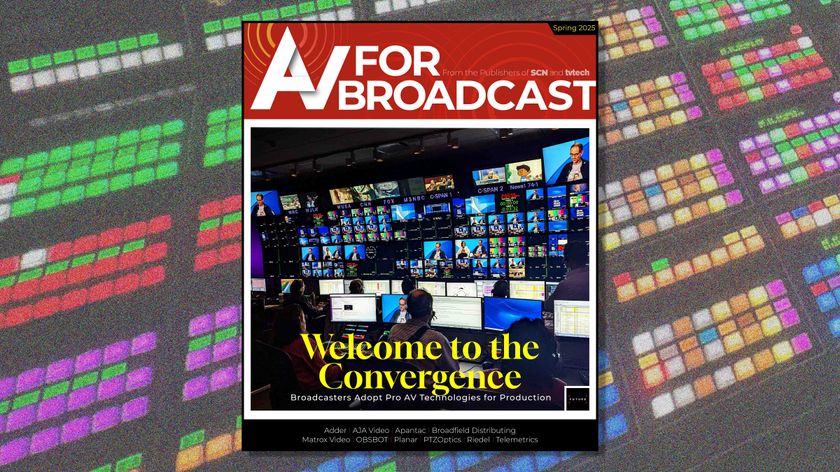The pursuit of relationships is a popular topic for discussion in the AV industry nowadays. Whether from the perspective of technology managers who seek a relationship-based partner rather than a transactional vendor, or AV services providers that are in pursuit of client relationships that yield positive results, appreciation, and repeat business; both parties must take on the responsibility of being an accountable participant if a relationship is to succeed.
Just as in life, successful relationships are built on mutual interest, give and take, compromise, and rewarding outcomes. Additionally, the qualities of open and effective communication, trust, honesty, and commitment remain vital core values for lasting partnerships. While it would seem clear how both parties can achieve their desired goal by committing to a common set of principles, challenges and frustrations continue to be voiced by technology managers and AV service providers.
With hardware no longer being a differentiator nor a profit center for AV service providers, more emphasis is being put on the importance of expertise, services, client care, and support. Like many other competitive industries, the AV business has prided itself on being customer-centric for decades. Manufacturers have hung their hats on the support of their products, service providers have sought to be highly responsive, and the industry as a whole has made significant accommodations to elevate the needs of end users over maximizing profitability. However, with the current trend toward technology managers doing more work in-house, it is apparent that needs are not being met and expectations not being satisfied.
Keeping that in mind, are there fundamental issues or inherent disconnects preventing successful relationships between technology managers and AV services providers? If so, how can each party help the other build more valued and successful relationships?
A common pitfall of AV service providers is to lose sight of their best clients because they are easygoing and low maintenance. Following the squeaky wheel principle, it is easy for AV service providers to get caught in the trap of focusing their efforts on trying to satisfy the most demanding and difficult clients who are not ideal, while neglecting to show more appreciation and consideration for their best clients. Over time, this lack of attention or dedicated interest will cause once-strong relationships to strain or fracture, leaving both parties dissatisfied. What could easily have been avoided by maintaining the attentiveness and quality of service that built the relationship ends up contributing to its downfall.
Being that everyone faces a shortage of resources, tightening budgets, and aggressive scheduling, technology managers can help AV service providers be more effective through increased communication, providing more advanced notice about upcoming needs, and helping manage situations to achieve the best outcome. Good examples of obstacles that limit successful results are changing requirements, last-minute requests, compressed schedules, challenges with network availability or IT support, and being on the outside of planning discussions. By working more closely together and allowing AV service providers to feel like a part of the internal team, common issues will become speed bumps rather than roadblocks and results can be greatly improved.
Here are some general tips that can help everyone build more effective relationships:
Listen and Observe
In a very busy, fast-pace society where distractions are abundant, deadlines are looming, and everyone expects instant results, it is becoming more challenging to take the time to listen to others’ requests and feedback and to collect information that can contribute to strengthening a relationship.
Admit Mistakes and Learn from Them
As humans, we all make mistakes. It is how these missteps are handled that can be critical to successful relationships. Rather than trying to be deceptive and not owning up to an error, miscalculation, or bad judgement call, trust, confidence, knowledge, and compassion can be earned from owning your actions and learning from them. Beware that while it is okay to make mistakes, making the same mistake repeatedly or not learning afterward puts a strain on relationships.
Give More than You Expect to Receive
A key to a good relationship is having each party strive to meet the other more than half way. What this means is that both sides need to be willing to give more than they receive to make the relationship work. If applied consistently to various situations, the result should be greater outcomes and increased value.
Demonstrate Consideration and Appreciation
Like the old adage that it is easier to attract more flies with honey than vinegar, everyone values praise and appreciation. This is especially true with millennials who seek more feedback and recognition. From simple compliments to tangible rewards, most people will work harder when know they are appreciated and recognized.
While relationships take work, anything of value is worth working hard to achieve. It is important to understand that all relationships are a two-way street. If both parties see the value in a relationship, success comes down to agreeing to core principles and resolving hiccups before they become issues. In general, it costs much more to seek and develop a new relationship than is does to grow an existing one. Therefore, it is important to put forth the effort to make a relationship work for both parties and resist the ill thoughts or temptation to seek a quick win.
Steve Greenblatt, CTS, is president and founder of Control Concepts, a provider of specialized software and services for the audiovisual industry.














